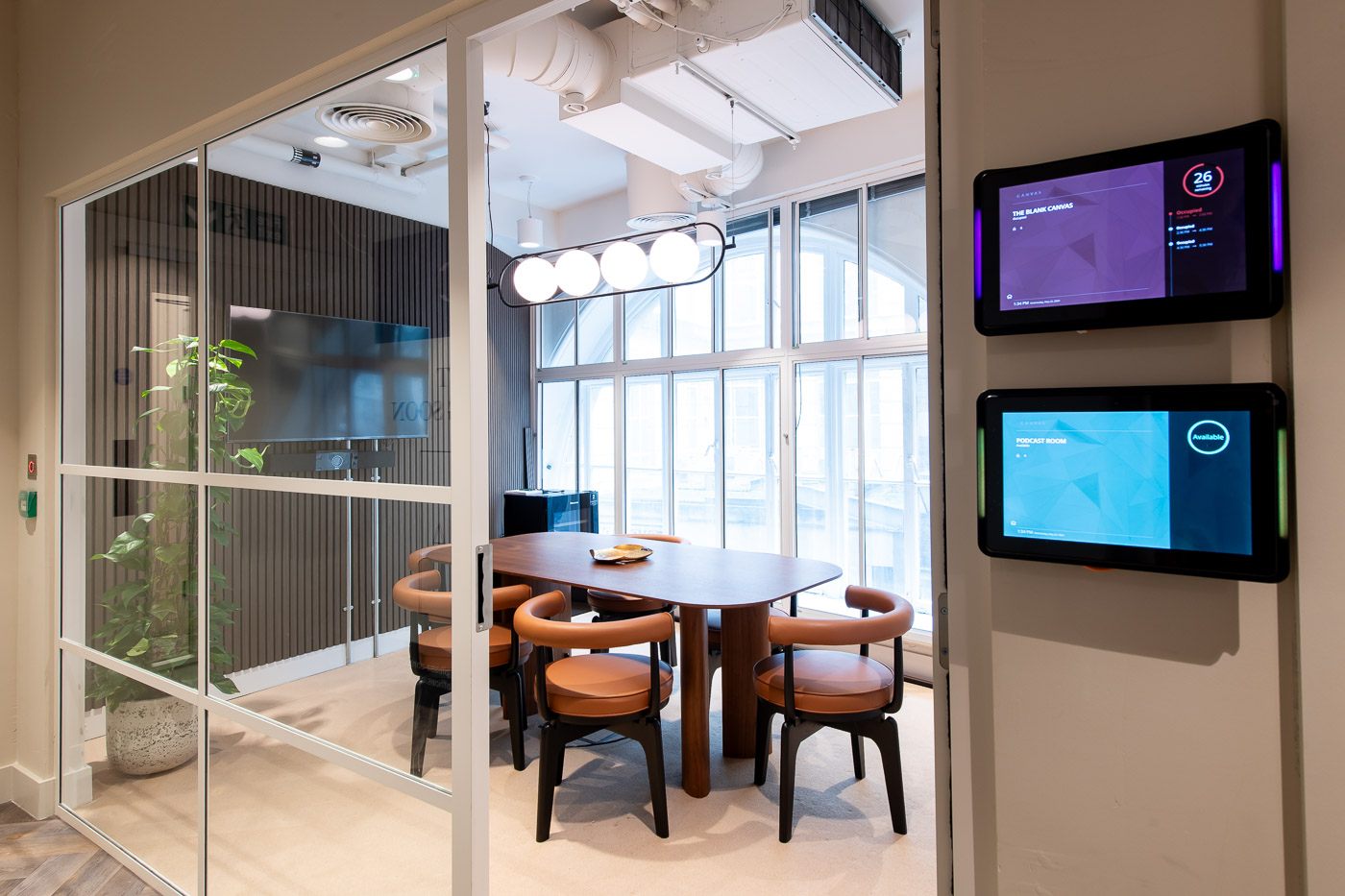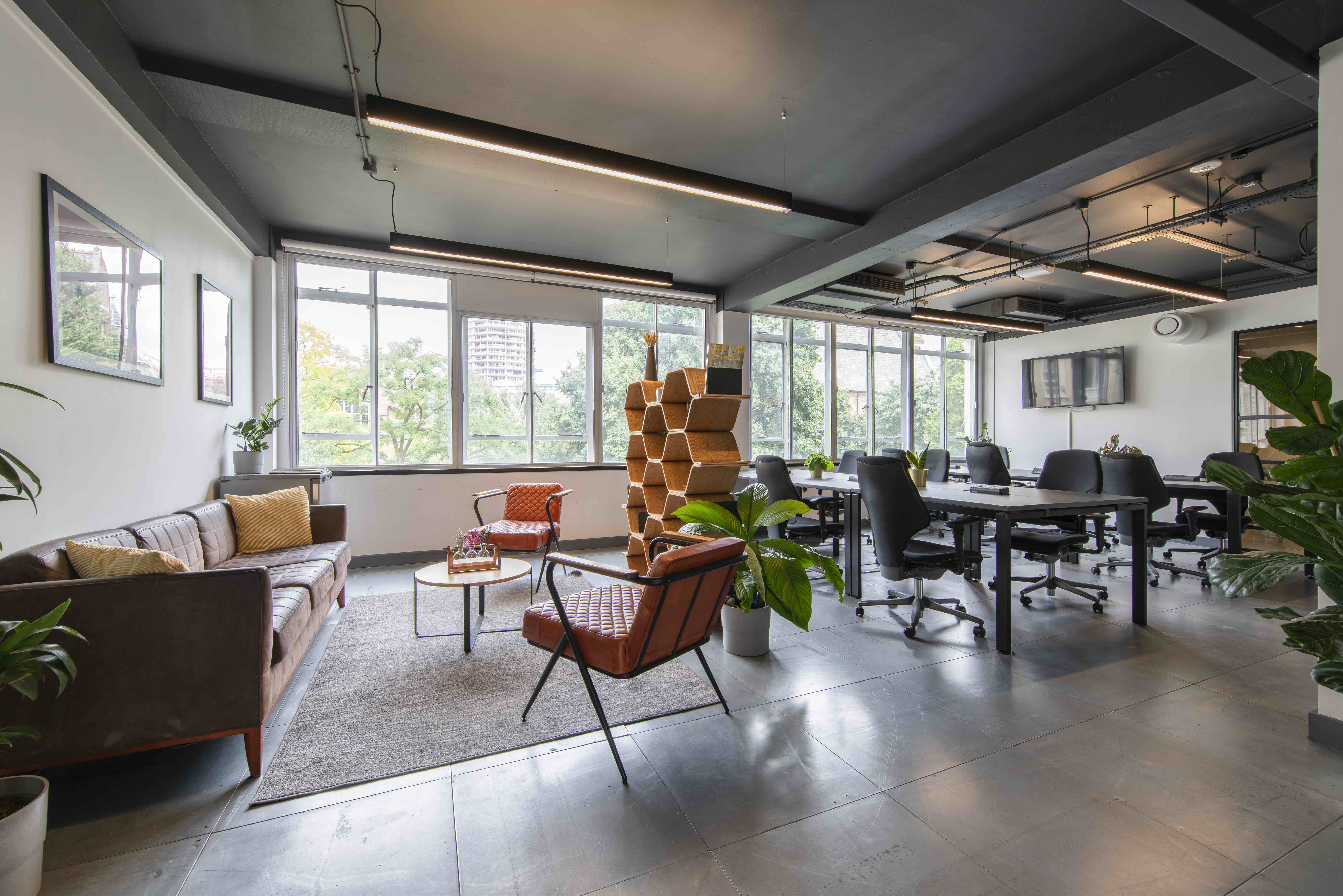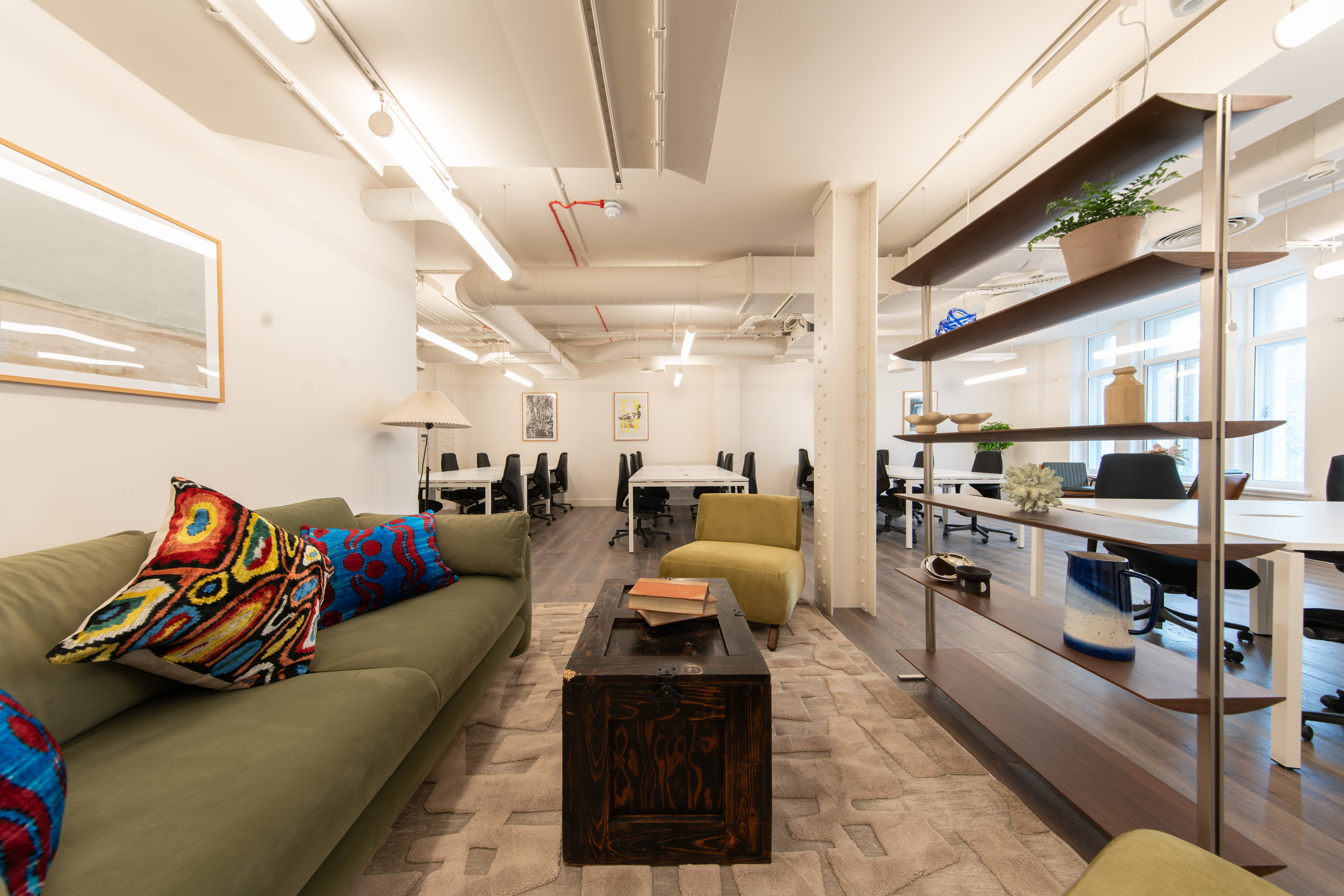If you took someone from an office 25 years ago and dropped them in a London office space today, they’d hardly recognise it as an office. No fax machines, filing cabinets, CDs… Office spaces have changed drastically in the last couple of decades and even more so in the last few years.
Offices today look like places you actually want to work in. Fluorescent lights and cubicles have been replaced by varied workspaces, oodles of natural light and mood-boosting houseplants.
The pandemic forced businesses to change how they work. Concepts like remote and hybrid work went from theories that many employees dreamed of to realities. As the world returned to the office, it wasn’t the office they’d left behind and had been forever changed.
But the changes haven’t stopped.
So what does the future of office space look like? At Canvas, we’re always keen to keep on top of office space trends, so we dug out our trusty crystal ball to take a look into the future. If you want to see what the future looks like, sit tight as we’ll be sharing growing trends and our predictions of what the future of office spaces in London looks like.
1. Remote and hybrid working models are here to stay
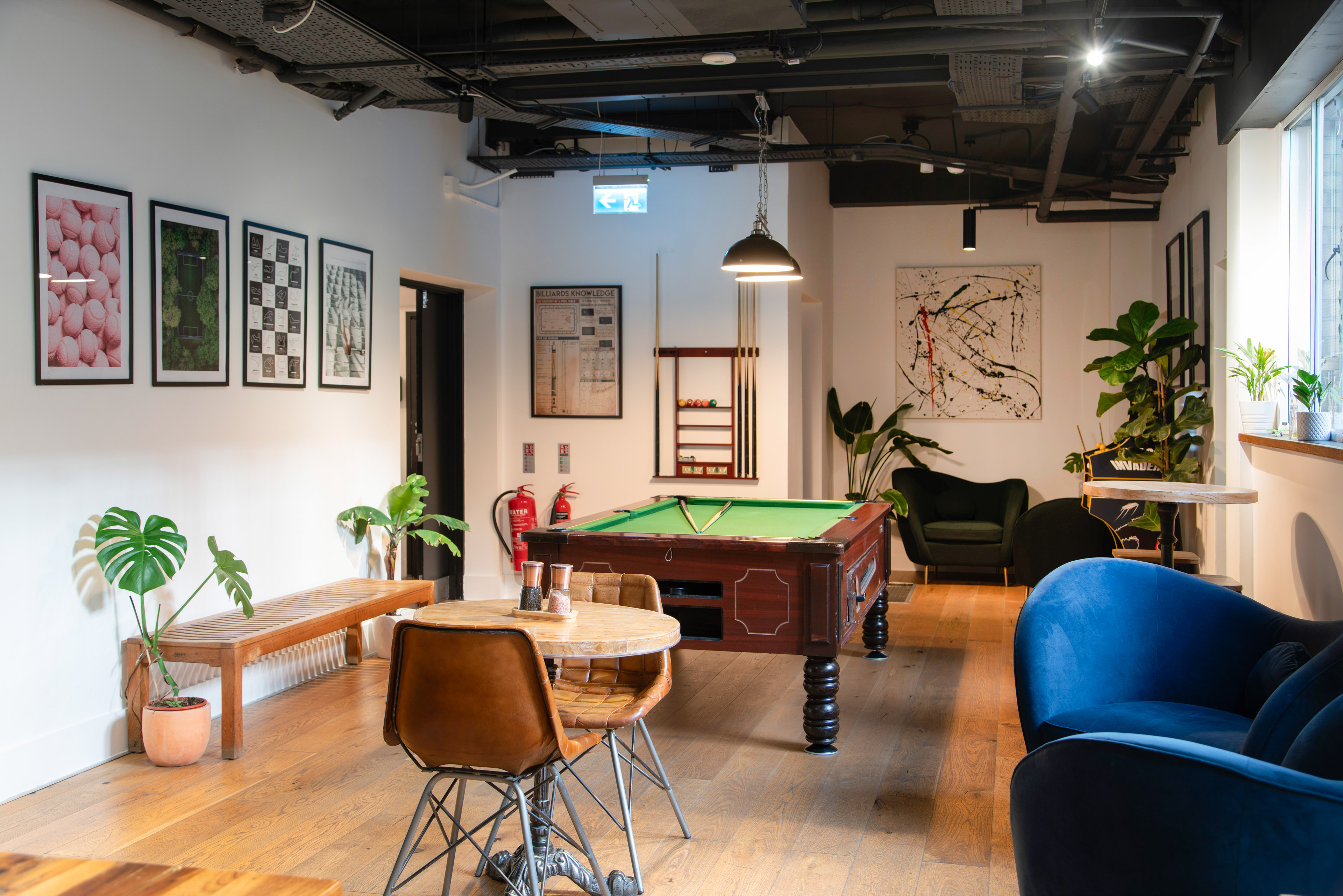
Not a massively surprising prediction, but remote and hybrid working aren’t going anywhere anytime soon. Both remote and hybrid working has been adopted by thousands of companies following the return to the office due to the many benefits they offer employees and employers.
The key benefits of remote and hybrid working models include:
- Increased employee satisfaction
- Better work-life balance
- Reduced office space costs
- Increased flexibility and productivity
- The versatility to use office space
A recent survey by Gartner revealed that 82% of company leaders plan to allow employees to work from home for some of the time. Companies of all sizes are adopting hybrid working models, including Nike, Klarna and JP Morgan.
2. Office spaces will prioritise employee well-being and adaptability
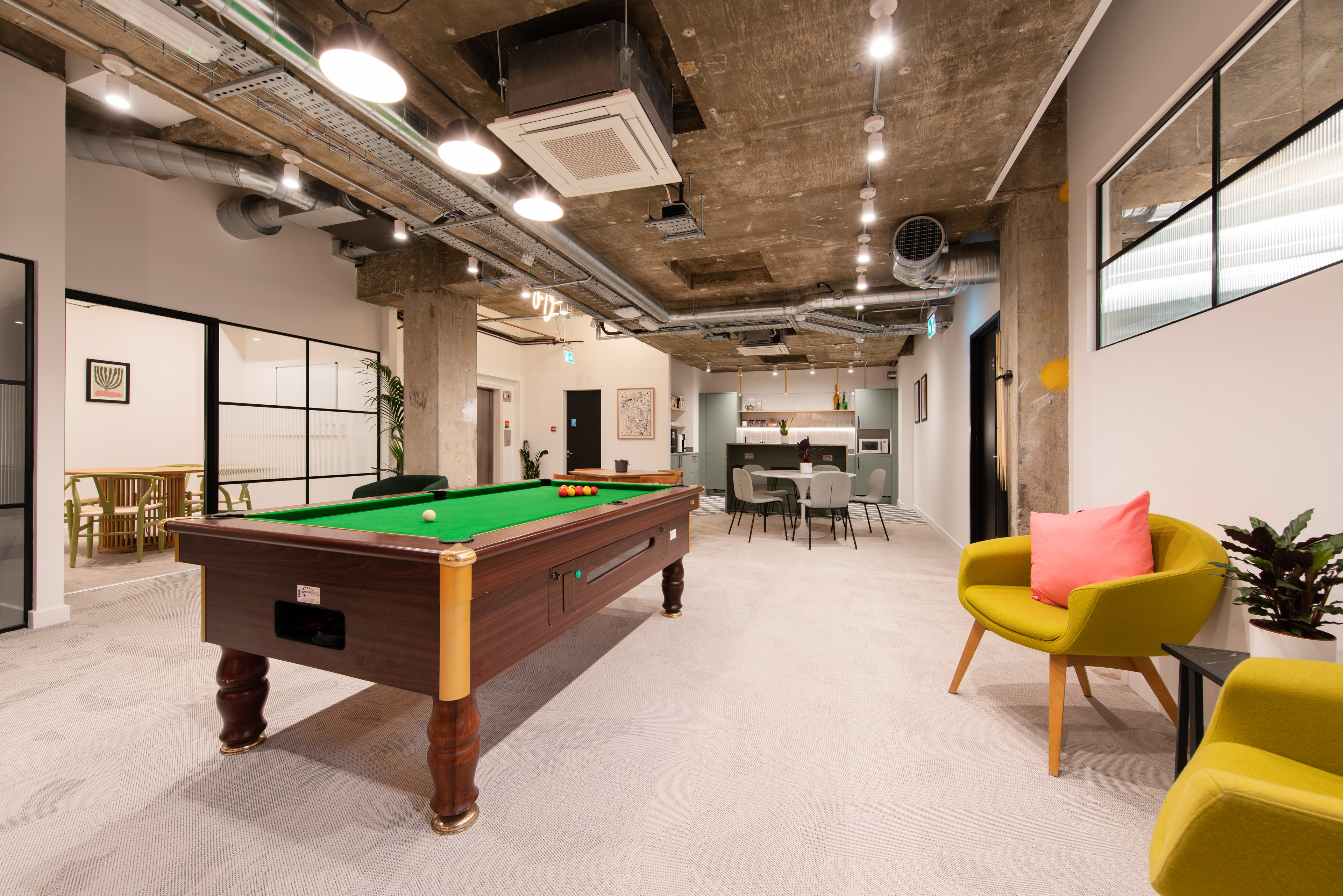
Alongside the rise of hybrid and remote working, another trend that has been growing rapidly in the last few years is the focus on employee well-being. According to a recent study by Ipsos, 75% of companies globally say that employee well-being is important to their company.
While we’re likely to see more well-being initiatives like more paid leave and better employee benefits, we’ll also see an increase in office features designed to emphasise well-being and productivity. These design elements will include:
- Biophilic elements – more natural light, greenery, plants, etc.
- Agile workspaces – a wider range of furniture, flexible layouts, etc.
- Improved acoustics and noise reduction
- Different working spaces – breakout areas, privacy pods, etc.
Many office spaces in London are already embracing this trend. Our new offices in Farringdon are designed with employee well-being and productivity in mind, and they feature breakout areas, plenty of natural light, a communal pool table and (saving the best ‘til last) they’re dog friendly.



